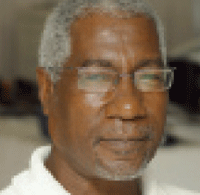
The world has long awoken to the foolishness of such policies and principles implementing painful punishment at schools in the name of instilling and enforcing discipline while the Caribbean takes time to awaken from its related slumber.
Same with uniforms and single-gender schools, with more Caribbean nations increasingly riling against maintaining such long-outdated and increasingly-costly norms that present growing economic challenges for the average parent.
Ditto school books: Caribbean nations remain wedded to an increasingly costly procurement system where schools have the freedom to select different texts from competing publishers, for the same subjects – again at a cost to parents.
Likewise efforts to introduce hi-tech in the region’s school system.
In the first decade of the 21st Century, some English-speaking Caribbean nations moved to computerize their education systems by replacing books with free laptop computers and gradually transforming classrooms through introduction of Information Technology (IT) systems.
Thousands of computers were sourced by the respective governments from a wide mix of sources and distributed free to teachers and students.
But those with interests in preservation of the outdated systems raised spurious protective arguments – like claiming the imported computers’ security systems would be too easily compromised by the original manufacturers.
As a result, while robots are increasingly replacing and/or assisting teachers in schools elsewhere, some Caribbean states are de-emphasizing transition to computerization of education.
Regarding uniforms and school books, tradition still dominates across the Caribbean, resulting in annual headaches for parents unable to meet the increasing related costs and children (some primary students in particular) are forced to daily fetch all their school books from home to school as schedules and teachers may change.
But not so anymore in the UK and USA, where courts are upholding claims by parents that states forcing students to wear uniforms are too stringent in limiting parents’ choices.
In one UK case earlier this week, a court ruled in favour of a parent who complained that a school forcing her daughter to wear a skirt was denying her child of the protection (by the state) from being unable to sit properly without risking exposure — and exposing her legs to the elements in times of cold weather.
Such ground-breaking court rulings will take time to come to the Caribbean, where colonial concepts and interpretations of justice and rights have outlived the colonial presence.
For example, teachers, parents – and a significant section of the Saint Lucian population — are still riling over the fact that some overjoyed students now feel free to tell or remind (their teachers) that “You cannot beat me again…” – as if some God-given right had been taken away through an official ban on corporal punishment at schools.
The mixed-school system also similarly entrenched across the region and with traditional definitions of ‘male’ and ‘female’ wear still predominant, it is also hardly likely that a referendum to ban skirts at school will win a ‘yes’ vote in any Caribbean country.
Same with the continuing orientation of the region’s education in the direction of attainment of degrees in subjects that will mainly see them eventually more attracted to careers beyond the Caribbean’s shores, continuing the brain drain that has for so long robbed the region of its best minds over centuries.
All is not lost. The region is also awakening to some important realities on the global education front and The University of the West Indies (The UWI), after 70 years at the forefront of the region’s education thrust, is today ranking high among the world’s universities for its ability to change with and live up to the requirements of the times in its special circumstances in our special part of the world.
It’s only now for national governments, education stakeholders and Civil Society (including students) to take positive approaches to the search for solutions to traditional problems, which will be based on sober analyses and not on negative emotional or traditional responses to trending global changes.
Fact is: If we don’t swim together with the rest of the world, we will drown in our own Caribbean basin.






